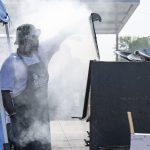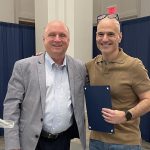Notre Dame has had a close relationship with the Peace Corps from the beginning that continues to this day. The University has sent 921 volunteers to serve since its start, including 17 who had to be evacuated in March 2020 when the COVID-19 pandemic began. Many returned Peace Corps volunteers who work on campus said the challenging restart of the service program this summer is a fitting time to remember its campus connections. Keough School master of global affairs alumni Jaclyn Biedronski ’21 and Matilda Nassar ’21 were featured in a university-published story about Notre Dame’s role in the 1961 creation of the Peace Corps.
Below are excerpts from “Origin Story,” originally published at nd.edu/stories.
Jaclyn Biedronski ’21
Jaclyn Biedronski was born in Baltimore but moved as a baby to a small coastal town in Mexico. Her family moved again to Florida when she was 13, and she majored in international studies and psychology at the University of Florida.
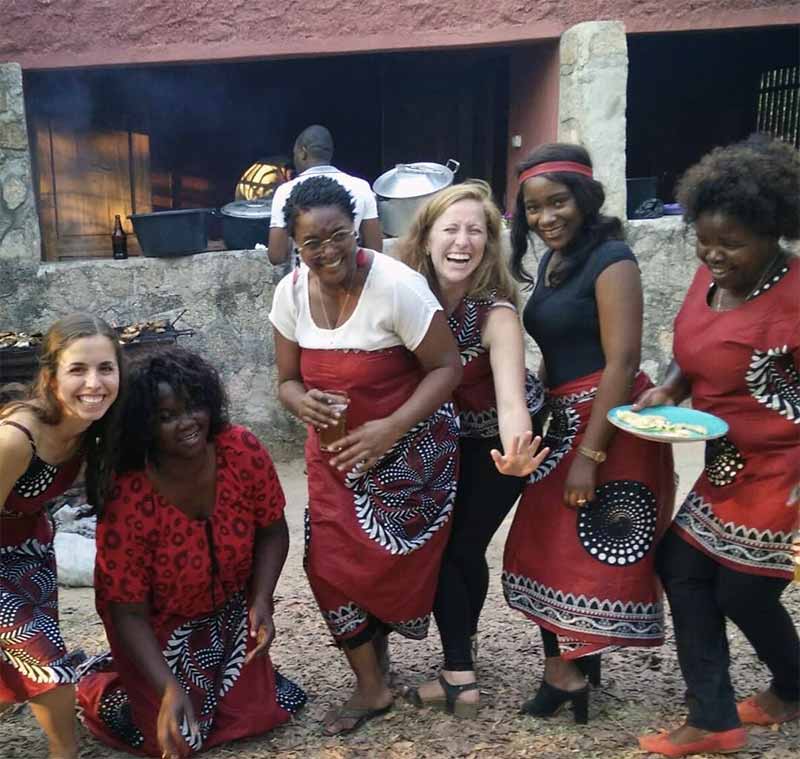
She said she joined the Peace Corps because a family friend talked about the experience when she was young. “In my eight-year-old mind, it sounded like the best thing to do,” she said. While volunteering in Ghana during college, she also met the Peace Corps veteran founder of Global Mamas, a nonprofit that helps African women improve profits from their handcrafted products.
Assigned to Mozambique, Biedronski taught English to middle schoolers in classes of eighty-five to ninety students. Even though she spoke the country’s common language of Portuguese, she said she quickly realized she wasn’t well-equipped to help the local people in tasks foreign to her.
“We knew we were getting a lot more than we could possibly ever give back to the community,” she said. “That creates some tension within the volunteer because you begin to have some doubts: ‘What am I doing here?’”
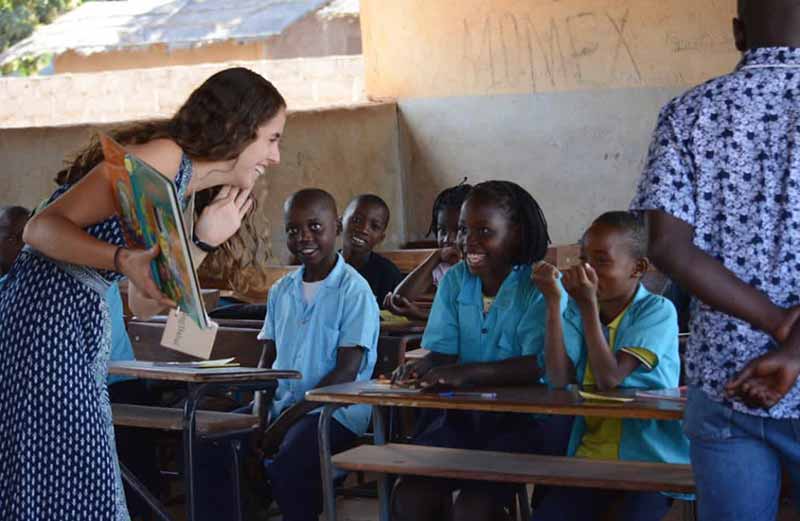
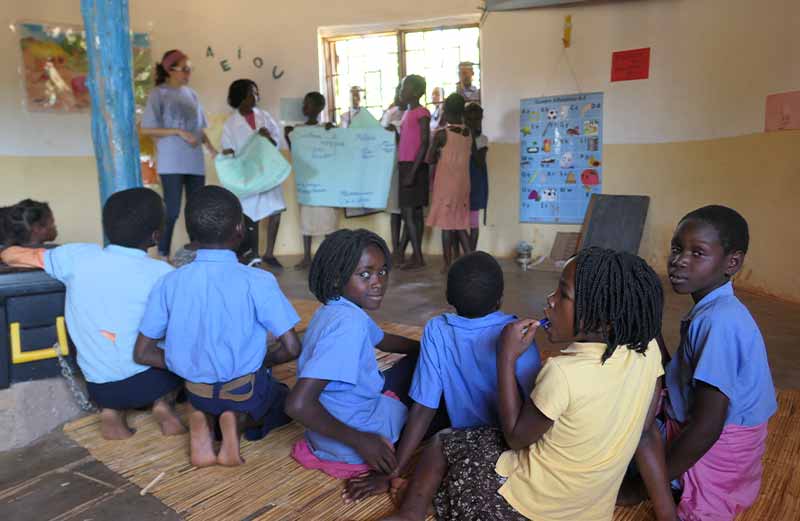
But development aid is only one of the three core goals of the Peace Corps. The other two are exposing Americans to the world so they can become more internationally aware, and creating goodwill in other countries through positive interactions with Americans.
“Two-thirds of the goal is that cultural exchange,” Biedronski said. “I think that’s a beautiful aspect of the Peace Corps. It provides interactions between Americans unlikely to travel to these places and communities not likely to encounter Americans.”
Biedronski said her Peace Corps experience not only brought her to Notre Dame but it opened her eyes to larger problems in developing countries. Structural issues from corruption to education to aid doing more harm than good all need policy solutions, she said. And her on-the-ground experience is invaluable in her research.
“I think my Peace Corps experience helps me see things with a critical eye in terms of cultural appropriateness—how we engage with individuals, and to be respectful,” she said. “I wouldn’t be sitting here if I hadn’t done the Peace Corps.”
Watch Jaclyn Biedronski’s interview with Notre Dame alumnus Tom Scanlon ’60, one of the first Peace Corps volunteers:
Mathilda Nassar ’21
The bonds that volunteers build in their host countries can be very strong. For Mathilda Nassar, her service in Ukraine from 2016 to 2018 means the current war there is painful and terrifying.
She was born in Palestine to an American mother and Palestinian father. War was a part of her childhood until she was 11 and her family went to the United States for her sister’s heart surgery. They settled in Richmond, Virginia, rather than return.
Nassar attended Roanoke College and studied international relations with a concentration in peace studies. Before coming to Notre Dame, she worked in advocacy for Palestine, especially since her family has been fighting a legal battle for 30 years to keep Israel from confiscating their farm near Bethlehem, where they run a grassroots peace organization.
At the time, she wanted to learn the Russian language, and her mother served in the Peace Corps in Senegal in the 1980s. “I had always grown up with this kind of dream of world peace—maybe it was too ideal,” she said. “I was just very inspired by the stories of her service and I wanted to have that experience.”
“I think all of us Peace Corps volunteers, we form a bond with our country of service. It’s a really special time when we grow up a lot. We have really fallen in love with Ukraine. That’s why having to watch it fall apart, it’s just really devastating.”
—Mathilda Nassar
Nassar was accepted to serve in Ukraine. She taught English in a secondary school in Dubno, about two hours from Lviv in the western part of the country.
“This is a little bit removed from the fighting and the war, which I’m thankful for,” she said. “But it doesn’t make it better. Just that my loved ones there are safe for now, which is something that a lot of volunteers don’t have the privilege of saying.”
Nassar said the Ukrainian culture and national identity were so strong in her experience that she doubts Russia can conquer them. The people were energetic and loved to celebrate history and holidays with traditional music and dance. She met her husband, an American serving nearby, during her service in Ukraine.
“I think all of us Peace Corps volunteers, we form a bond with our country of service,” Nassar said. “It’s a really special time when we grow up a lot. We have really fallen in love with Ukraine. That’s why having to watch it fall apart, it’s just really devastating.”
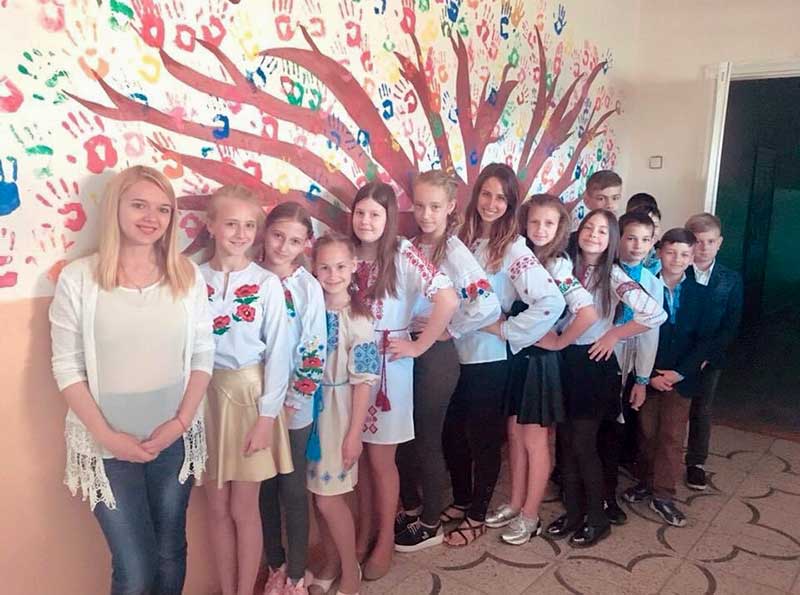
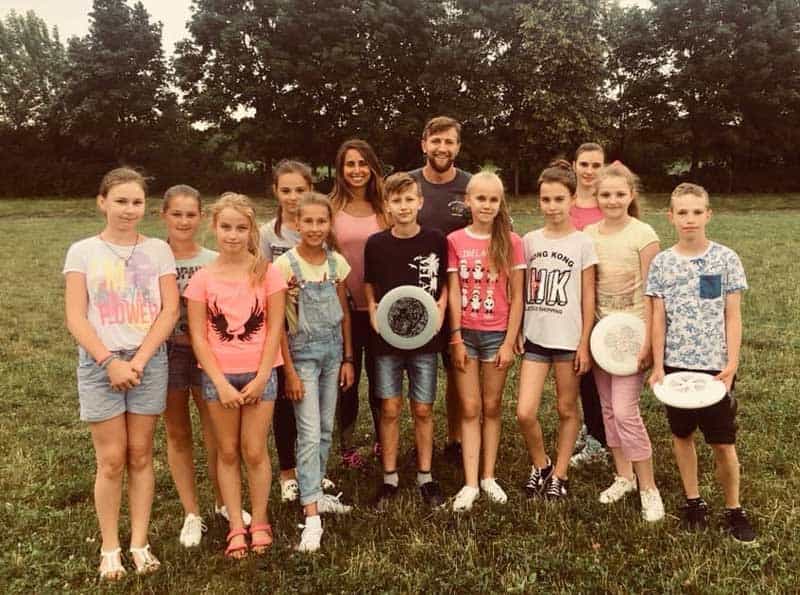
In response to the war, a group of returned volunteers have formed a crisis support group. Their projects include raising money, sending first aid kits, raising awareness and attending protests. “It’s basically a space for us to discuss everything that we’re feeling, because it feels weird to have this world here in the West go on and everything’s torn apart there.”
Funded by a fellowship from the Kroc Institute for International Peace Studies in the Keough School of Global Affairs, Nassar earned her master of global affairs degree from Notre Dame last May. She now works for Notre Dame’s Flatley Center for Undergraduate Scholarly Engagement as the student engagement program coordinator, helping students apply for prominent scholarships and fellowships, including Fulbright and Peace Corps. She said her Peace Corps experience is a key asset.
“I think you learn a lot of soft skills that have helped me be kind of successful in the job market, and also in going to grad school,” she said. “And then grad school prepared me for the role I’m in right now, so it’s been kind of a domino effect.”


